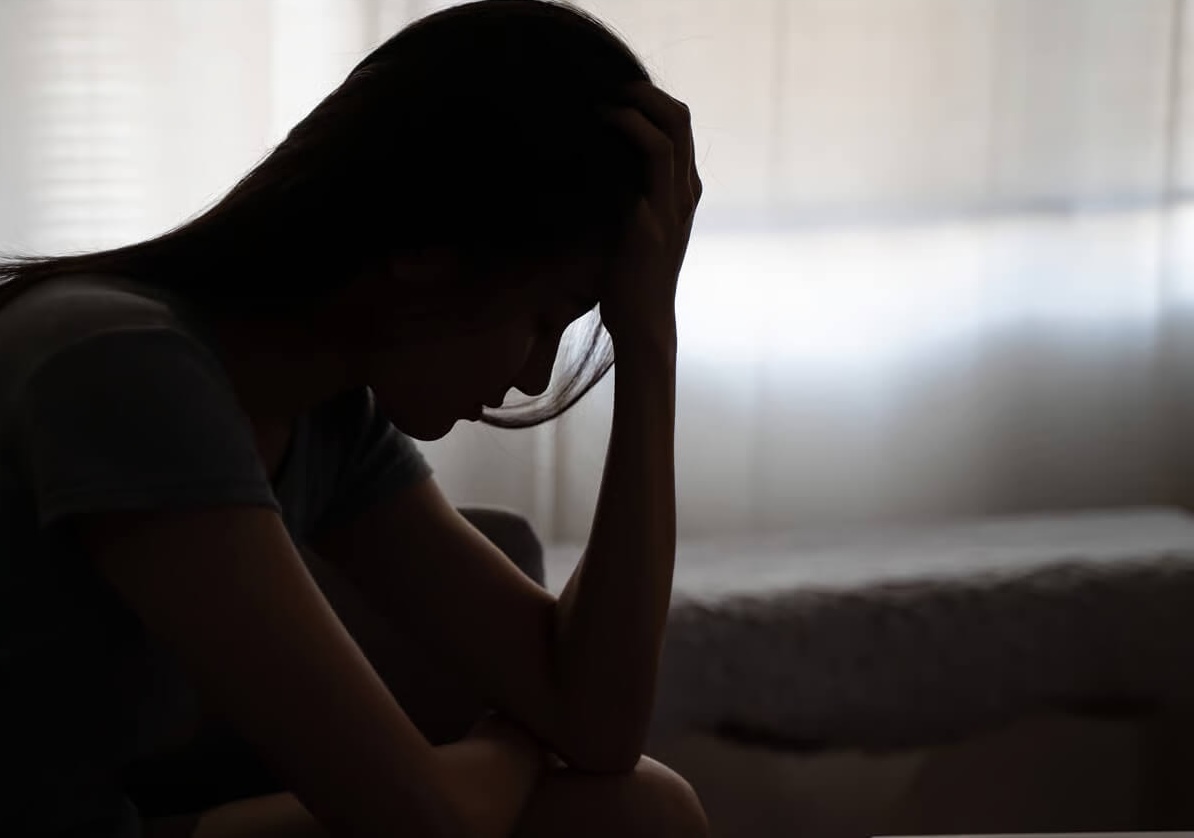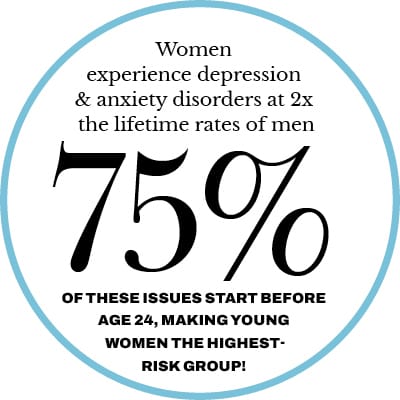Why Every Month Should Be Mental Health Awareness Month
Mental Health Awareness Month reminds us that true wellness means addressing both our physical and mental health, especially for women facing unique life challenges. Ask ChatGPT

The last time your doctor asked, “How are you feeling?” you probably mentioned just physical symptoms—soreness, digestion troubles, energy levels.
But did you mention the anxiety gnawing at you? The unexpected sadness? The grief as life feels so different from what it once was?
Most of us don’t, because there’s an implied understanding that “How are you feeling?” means “How’s your body?” when it should be “How are you doing both physically and mentally?”
That’s why Mental Health Awareness Month is so important. True wellness is caring for all of you, not just the parts that can be measured, tested, or scanned. While everyone deserves mental health support, women's challenges carry a unique weight.
Our Mental Health Journey Starts Young
Women experience depression and anxiety disorders at twice the lifetime rates of men, and these struggles begin early. 75% of these issues start before age 24, making young women the highest-risk group!

When you consider the self-suppression messages we absorb from a young age (manage your emotions quietly, don’t take up too much space, the “perfect body” is a must), this disparity begins to make sense.
And while these symptoms might shift as we age, they don’t always disappear. They actually deepen as we get older and navigate huge life transitions such as motherhood, menopause, or loss of loved ones.
Mental Health For Women 50+
1. Menopause
One of the biggest shifts we experience is menopause. Even if you’ve enjoyed years of relatively stable mental health, this transition can hit you. Hard.
As estrogen levels drop, it can cause worse sleep, brain fog, and mood changes that make you more vulnerable to anxiety and depression (Alblooshi et al., 2023). Scientists believe this happens because estrogen helps regulate serotonin and GABA, the brain chemicals that control your mood and emotional stability.
2. Loneliness
As we get older, loss and loneliness become unwelcome companions. Maybe you lose your life partner, see your children less and less, or say goodbye to friends one by one.
But the mental health consequences of social isolation are severe. It’s been linked to higher rates of depression and anxiety, and even rivals smoking and obesity as a risk factor for premature death. Seriously!
3. Retirement and Economic Stress
Women aged 50-64 are more likely than men to report feeling financial stress, and for good reason. We’re more likely to have taken career breaks to raise children and earn less due to the gender pay gap.
Then there’s the longevity factor: women typically outlive men, meaning our retirement funds have to stretch further. Mix all that together and you get a perfect storm for finance-related depression and anxiety.
What Now?
Here’s what’s encouraging: A study analyzing US medical claims found health diagnoses in adults over 60 increased 57% from 2019 to 2023. Women saw a larger increase at 44.6% compared to men’s 32.7%.
“Jen, how is that good news?” Because it could mean that more people, especially women, are asking for help, getting treatment, and finally addressing what’s been there all along.
And it all begins in your doctor’s office. So the next time they ask, “How are you feeling?” tell them how you’re really doing, mentally and physically.
As I always say, if we want to heal, we have to feel. And that starts with sharing our honest feelings with the people who are best equipped to help you. 🤍


